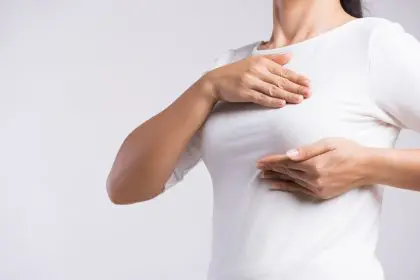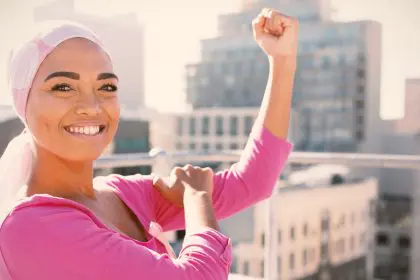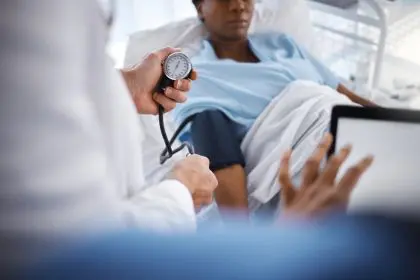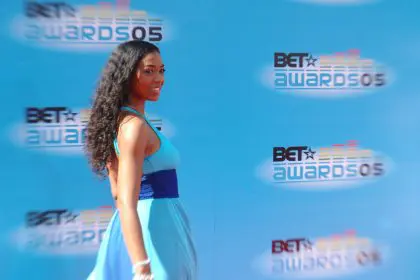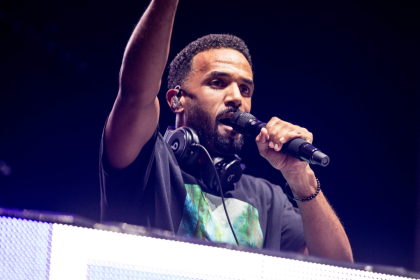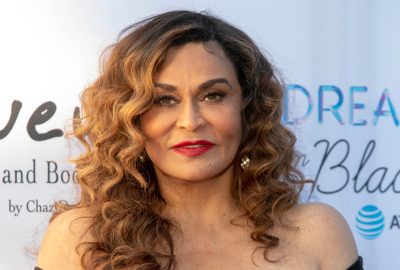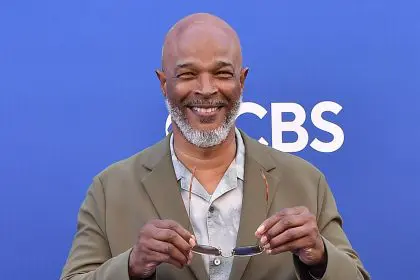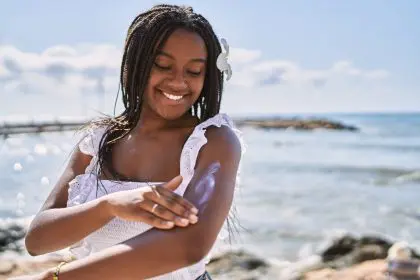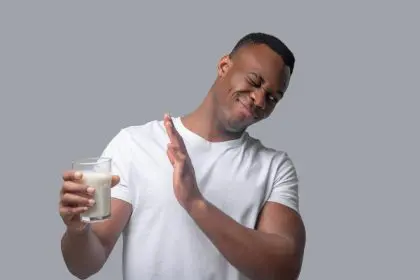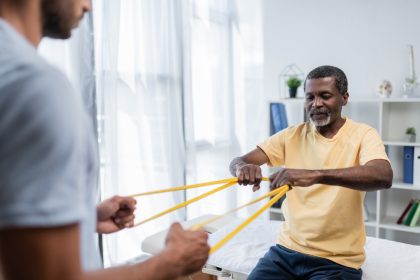As a breast cancer survivor, popular media personality Ebony Steele knows how to make health a priority and the true importance of having a solid support system. Last month, Steele utilized her platform to launch a campaign bringing awareness to a cause close to her heart: breast cancer. Throughout the past several weeks, Steele has released a series of photos highlighting the men and women who have supported her throughout her battle.
“The mission of the ‘Breast Friends’ campaign is to raise awareness about the disease and inspire fellow survivors to share their stories and help uplift women during their battle with breast cancer,” Steele said in a press release.
According to The American Cancer Society, excluding cancers of the skin, breast cancer is the most common cancer among women in the United States, accounting for 29 percent of newly diagnosed cancers in 2013-2014.
Recently, rolling out had the opportunity to catch up with Steele who spoke candidly about beating cancer, her initial emotions following her diagnosis, and her new outlook on life.
Check out our exclusive interview with the inspiring Susan G. Komen Circle of Promise Ambassador below and the amazing photos by DeWayne Rogers. –ruu hawkins/@ruubabie
How old were you when you were diagnosed … was there any indication that you may have had breast cancer?
No! Not at all. As a matter of fact, I consider myself someone who prioritizes their health. I grew up in Birmingham, [Alabama], where I danced all my life. On top of that, there hasn’t been any history of cancer in my family. So you can only imagine the initial shock! I was only 35 years old when I was diagnosed with breast cancer.
What was your initial reaction — how were you able to cope? When I think about it or talk about it now, if anyone would have told me that I’d be diagnosed with breast cancer five years prior to that, I would have been like “Oh my gosh, who wants to hear that?” At times I had a pity party — you know the kind where no one’s invited or wants to come.
I was two months into my dream job, in a new city, far away from my family and I didn’t want my diagnosis to tarnish my young, hip, professional image. This is going to sound terrible — but I like to keep it real. One of the first things I thought to myself was, “Oh my gosh … am I going to lose my hair?” I remember telling my doctor my hair wasn’t going to fall out — I’d done research and not everyone loses their hair. He looked at me with a blank stare, like “Ebony, your hair is going to fall out.” And it did …
We live in such a vain society and while initially I was devastated, I eventually got to a place where I could say I am not my hair. I am beautiful. I am the face of a breast cancer survivor.
Who did you turn to first when you received the news from the physician? When I was first diagnosed, it was 2007 and I had just moved to Dallas to co-host the “Rickey Smiley Morning Show.” It was some time in September, that I was laying on my couch when I felt a lump the size of a marble on my breast. There I was thinking, “I just got a great job — my insurance doesn’t kick in for 90 days.” I called my sister to tell her what I found and told her that I would wait to check it out because I wasn’t trying to spend that kind of money. She, of course, called my mother who immediately called me, insisting that I get it checked out right away. So, I went to the doctor and it was exactly what we thought it was. So you know, during that time, I turned to family.
I’ve made some great friends along the way, that supported me and stood by my side — many of them are part of my “Breast Friends” campaign, which ran last month, bringing awareness to the disease in hopes to inspire fellow survivors, not just of cancer but to uplift those who have battled serious diseases and trials in their life altogether. At this point, I feel like my diagnosis was a test of character.
Now if someone were to ask me today, “Who in this room would like to be an advocate for breast cancer?” I wouldn’t have said “Ooh, ooh me!” But I’m in a place now where I can use my story to inspire other women, not just women, but men as well and that is therapeutic for me. One message I make sure to pass on, is that breast cancer is not age or gender specific. I was so naive back then. I thought that breast cancer was an old white woman’s disease.
What was your treatment regimen — did it consist of chemo, surgery or both? I had stage 1 breast cancer, so I initially went through four months of chemotherapy. I also made the personal decision to have surgery. So there was a combination of both.
How do you see life since your diagnosis? I’m in a good place now. The thing about breast cancer is that the campaign is on going, which gives me the opportunity to continue to inspire those around me. I’ve really become about empowering women and talking to them about not letting trials hold them back, whether it be a bad relationship, abuse or financial hardship — these are different kinds of cancer, unlike the physical, which we can take control over. That’s what I hope to encourage women to do.
What advice would you give others facing a similar trial? My message to everyone is that breast cancer is not an old people’s disease. Ladies, prioritize your health and get your mammograms. For me, consistently staying in prayer is a must! As for those aiding someone on their journey to health, have those ears wide open to listen.
To stay updated on the “Breast Friends” campaign, “Steele Standing Award” and other future initiatives, follow Ebony on Twitter @EbonySteele or check out her website at www.EbonySteele.com.




